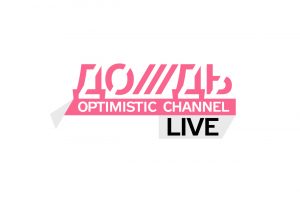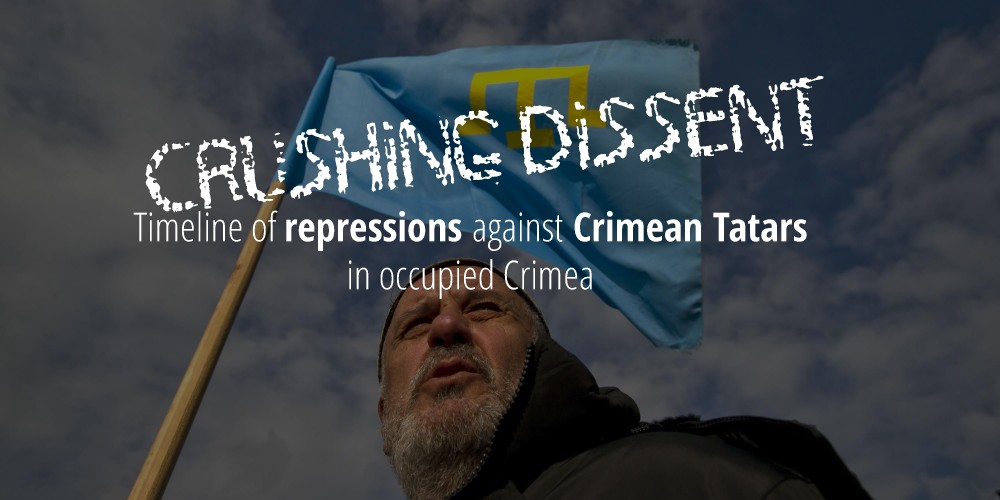In recent years the term “propaganda” has become more and more associated with Russia’s media and the work of Russian journalists. However, things were not always like this.
Around twenty years ago, Russia experienced a flowering of real journalism in place of propaganda, and even for Ukrainian journalists Moscow was a desirable place to work, and not just for financial reasons.

Russian journalist Aleksandr Shchetinin worked during that time. In 1997, he founded a news agency called Noviy Region (New Region), which had offices across Russia and abroad, including Ukraine. Aleksandr used to work in Ukraine a lot, and devoted a lot of time to the Euromaidan. It subsequently became clear to him that working in Russia was no longer possible.
Along with pressure on Aleksandr's news agency, another reason to leave the country was his personal disagreement with the Putin regime. In 2014, Aleksandr sold his shares in the Russian network and focused his attention on the Ukrainian office, which now has nothing in common with the Russian parent agency. A few months after Euromaidan, the journalist attempted to obtain Ukrainian citizenship, something which has proven unsuccessful due to the complicated procedure.
Aleksandr has personal experience of contact with security services, having been almost arrested during one of his last trips to Russia, and he was lucky to remain free. As he no longer has any business in Russia, Aleksandr has no intention of returning to the country.
In a conversation with Euromaidan Press, he describes where and why there was such a dramatic change in Russian journalism.
How do you remember Moscow back then?
After Perestroika [“restructuring”, the term used for the reforms in the Soviet Union from 1985-1991], Russian society was full of hope. I remember very clearly how people's eyes were shining, how they were creating different projects without any signs of danger.
I remember all the squabbles under Yeltsin, and the time when a group of oligarchs almost usurped power and Yeltsin to a large extent had to listen to them. I remember informational wars on TV. I remember free, democratic NTV.
During those times, society still had hope, and the most important thing was that people were optimistic, they were looking forward.
I remember Moscow at that time. I recall it shining with lights and hopes, with large numbers of foreigners. When Putin came to power, they were the first who disappeared - from coffee shops, from meetings with friends, from communication at work, although at that time nothing foretold the troubles to come.
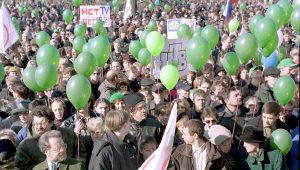
If back then someone had told us what would happen ten years later, no-one would have believed it. I remember very well how the Yedinaya Rossiya [United Russia, pro-Putin political party] was a dwarf and an organization without influence. And when they held their congress and were saying from the stage what they are now saying publicly (as they have not changed at all), for us, for journalists it was some kind of mirror. Because behind the walls of the congress there was Moscow, which wanted to develop. And here [at the congress] there were very tough speeches and statements. Later they implemented what they were saying.
How NTV and ORT fell under government control


In 1996, Russian media magnates and the overwhelming majority of journalists united against the threat of a communist takeover. They acted as a united front in support of President Boris Yeltsin, who was running for a second term. [expand title="More"]The front not only kept the ruling elite in power, but also brought them tangible economic benefits. That was the time when the word "oligarch" became a household name, and the business elite started playing the role of new Russian ideologists. Oligarchs are convinced that the government should see them as partners in nation-building. As a result, society was obliged to look on at the information and bank wars of 1997 and 1998. In the summer of 1999, it became clear that the creation of a business and political alliance as in 1996 was impossible. The Russian political elite could not agree on a candidate for the presidency that was acceptable to all the competing clans in business and politics.
Two influential politicians, Moscow Mayor Yuri Luzhkov and former Prime Minister Yevgeny Primakov, concluded an alliance and, according to many, were waiting for their moment to become a tandem president and prime minister. However, for the Kremlin this turn of events was quite dangerous. An alternative was urgently needed. The war between two main TV channels became a mirror reflection of the political situation in 1999. One of the channels, NTV, was owned by Vladimir Gusinsky, while the other, ORT, was under the control of Boris Berezovsky, even though technically it was 51% state-owned. In 1999 Gusinsky sympathized with Luzhkov and Primakov, while Berezovsky was openly speaking about the need for a "new face".
It was during the summer of 1999 that a NTV presenter introduced the term "family" in response to the Kremlin's attempts to curb the "independence" of Gusinsky. By the end of that summer, a "new face" for the Russian authorities had been found. A little-known native of the KGB, Vladimir Putin, became the “successor”. During these informational wars, society supported NTV. In April 2001, the last big meeting with thousands of NTV supporters took place. The channel fell under the control of the state-owned company, Gazprom. Info from Radio Svoboda.[/expand]
How did their influence start spreading?
I remember the time when the media were completely independent, in Moscow and even regional media. For example in Yekaterinburg, where we opened our first editorial office, there were 18 TV channels. That was more than in Moscow. Each of them had its own information policy.
After Noviy Region, in Yekaterinburg dozens of news agencies appeared. All of them found their niche and, most importantly, every news agency earned money, the same as TV channels. It was money which, tentatively speaking, was from paid institutions or businessmen close to Putin.
At the beginning the media were lured, and during that time they tasted big money. Taking the example of Yekaterinburg, as it is located in the oil- and gas-rich north and the city is the first point for siphoning off money, journalists from some media outlets there received wages upwards of $3,000 (under Putin). The media were completely bought up. I do not mean that somebody bought shares in a media organ, but they were bought by “jeansa” (supposed “news stories” serving advertising purposes), which appeared in 2001-2002. The media got used to it and did not have to do anything to get this money - just a little kick against this or that person. Later, to get the money they were asked to do some more difficult things, like fully praise Yedinaya Rossiya, Putin's institutions, the FSB [Federal Security Service] etc.
Putin played the democrat for a very long time. He did it for a decade. He used to say that he wouldl not leave the path the country had started on.
Speaking of the old NTV, it really was democratic, but it rebelled not because there was a sea of freedom of speech, but because there were endless oligarchic wars. People no longer needed freedom of speech, and they did not need this democratic NTV. This is my personal opinion, but I think that people were not ready for freedom.
It turned out that they do not have a need for it and it is much more comfortable to live in a society where people do not decide anything, and the state takes care of them. It came from the Soviet Union. Nobody wants to build, nobody wants to do anything by himself. They need stability and that's all. Hence, we see the idealization of the Soviet Union, which now has acquired a surprising form.
Who is responsible for the situation: the authorities, or society that let these authorities come to power?
Of course it is a mutual process. However, there is a phrase that a fish begins to stink from the the head down, and everybody starts blaming the authorities and the leaders. I believe that it depends on which head the fish has. When in April 2014, I made a public statement that I had renounced Russian citizenship, I said that it is not so much a protest against the government and Putin, but a protest against the people who supported this war, the occupation of Crimea, and the bringing of troops to Donbas. Many in Russia stick to the position “we are separate from the government and we do not assume any responsibility for them.” I say guys you are assuming it. I who is not there am responsible for them, and you are all the more responsible. A citizen is responsible for the authorities he has, and to a certain extent it depends on him what kind of authorities they are.
In addition, even when we talk about the free and democratic Russia back then, at the same time we clearly remember that Transnistria was taken away from Moldova and it was during the time of the absolutely democratic Boris Yeltsin. The war in Chechnya was under the absolutely democratic Yeltsin.
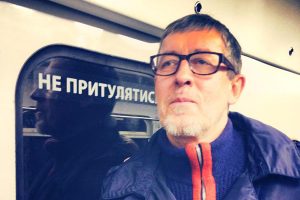
Why has Russian society let this happen?
Slowly comprehending how this could have happened, I came to the very clear conclusion that during Perestroika and later during the years of freedom and democracy, the question of the destruction of empire and imperial ideology, along with the psychology of the masses, was never raised, because all the democrats believed that Russia should be a great, powerful “elder” towards those countries that emerged from the Soviet Union and became democratic. Whatever Václav Havel, Mahatma Gandhi or other Russian equivalents come to power there, within a very short time they will turn into a second Putin, perhaps even more brutal. Here many people hope that if you put pressure on them with sanctions, normal democrats will come to power. I always say, guys, don't even think about it. If Putin goes away now, in six months, if free democratic elections are held, his even tougher equivalent will win. For Ukraine, it will be much worse. And this is confirmed by the words of Alexei Navalny, who said that Crimea is not a sandwich and you cannot give it back all the time, and by the words of Khodorkovsky, who said the same in a softer way.
Have the views of your circle changed?
As for all of us, 90% of my communication consists of professional communication, and when we have friends, these friends are from the field of professional journalism; for me it is also the field of political consulting as I have been engaged with for many years. It is a huge number of people who came down on the side of the authorities, so they have a pronounced anti-Ukrainian stance. Some of them did it for money, others had already formed views. I have always been saying: in order to justify his actions, a person will change his beliefs. It will be much easier, because he does not do it for “mulla”, but because he sincerely believes that Nazis are in Ukraine and that the Russian language is prohibited there. For many years, a journalist with [independent] views will not be able to work there.
Which media there do you consider as more or less free?
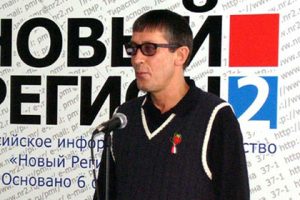
I am very suspicious towards people who publish pro-Ukrainian texts or anti-Putin texts there. I know very well that while you are there, you cannot be uncontrolled there. In this regard I am very lucky because I have lived in Ukraine for quite a long time. However, I would often go to Russia as I had editorial offices there and everything else. And even I had a so-called “curator” from the FSB, who decided to get acquainted through friends. He introduced himself and said which institutions he represents. "You're a journalist, working abroad, we could exchange opinions. The only thing is that you have to understand that our conversations should be kept confidential."
I replied that I am a journalist and I am ready to talk to anybody. However, there cannot be any private conversations because of the fact that I am a journalist.
I have been taught by the old dissidents, who had been in prisons in the Soviet Union, that any contact with the secret services needs to be spoken to as wide a range of people as possible, which I always did.
It was a constant pressure and constant recruitment. You have to be attentive and control yourself all the time. When the people there say they have never communicated with the FSB, I do not believe it. Being there and able to write articles, to support Ukraine and condemn the regime, it is necessary to have some very strong protection in such institutions, which allows you to do it for some purpose.
Because the real opposition in Russia is at the same time sitting in prisons under awful conditions, no one writes about it seriously except niche sites. These people are serving 20-25 year sentences. Meanwhile, someone is sitting in Moscow and writing articles. This leads to some very clear ideas. It is not that if some media has written something positive about Ukraine it will be closed, but it's Russian roulette.
And what about Novaya Gazeta, TV Rain?
All remnants of the so-called freedom of speech are permitted by the authorities in their own interest. I was talking about Novaya Gazeta. I will give an example: up to 1943 Germany had the anti-fascist newspaper Frankfurter Zeitung, where all anti-fascists were grouped together, and the newspaper was printed and sold in Nazi Germany. And if one had the wish to, one could buy it just like Novaya Gazeta. So that it was a kind of an island for Hitler to show Europe and America: why are you accusing us of totalitarianism?
I would like to correct myself: there are journalists, but in general, the media, Novaya Gazeta and Dozhd serve Russian propaganda and at Ekho Moskvy only 1-3 principled journalists remain. [expand title="More about Dozhd, Novaya Gazeta, Ekho Moskvy"]
Novaya Gazeta is an online and printed outlet known for its critical and investigative coverage of events in Russia. Six of the organ’s journalists have been killed in connection with their professional activities since 2001. including Yury Shchekochikhin, Anna Politkovskaya and Anastasia Baburova.
The Russian channel that has gathered around it many liberal politicians, activists and opinion leaders. Since 2014, the channel’s life has been made significantly more complicated. The channel lost the right to earn money from advertising, and it was also cut off from the biggest cable networks, which reduced its audience to a fifth of the previous figure. Now, around 6-7 million people view the channel in Russia. The channel’s Ukrainian audience is second after Russia. Also the founder and CEO of TV Rain, Nataliya Sindeeva created a novel business model in Russia (and unusual elsewhere in the post-Soviet space), by which the viewer subscribes to gain access to content. It also screens the first political TV series in Russia funded by subscription. Info from Novoe Vremya.
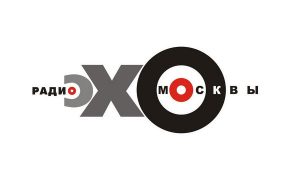 Ekho Moskvy (Echo of Moscow) – informational radio station. In 2012 was nominated for Nobel Peace Prize.
Ekho Moskvy (Echo of Moscow) – informational radio station. In 2012 was nominated for Nobel Peace Prize.
[/expand]
Are you going to return to Russia?
I am absolutely not going to return to Russia. Of course, in Ukraine, especially after I made the final decision, when the site was blocked in Russia completely, my financial shape has not improved if to put it mildly. However, I do believe that I have paid a low price to get out of there.
I have friends and acquaintances here. There are already even more of them here than there. Of course I would not be able to betray them. And I will not accept any offer from that side, no money or anything else. I am saying that I will go to Russia only when the question of independence of my Siberia arises. Originally I am from there. I have a bit of a different attitude to Siberia, I do not consider it as a part of Russia. I believe that it also was occupied by force, and at that time there were no Russians; only indigenous peoples lived there.
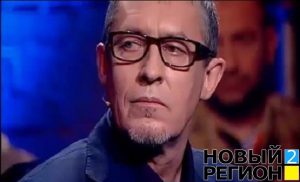
Now Ukrainian Noviy Region is not related to Russia at all.
From time to time we find out that on Ukrainian territory a very long way from the border Noviy Region is blocked. There [in Russia] it is blocked by Roskomnadzor [The Federal Service for Supervision of Communications, Information Technology and Mass Communications] and nobody reads it. However, now we have 2,000 visitors a day from Russia. The situation in Russia now is so tough that I do not believe that there can be any small, naughty providers that disobey orders from Roskomnadzor. There is constant informing: if it happened, somebody would immediately rat and it would be shut down. None of my friends there told me they opened the site without an anonymizer. It means that there were 2,000 people who had special permission. So in Russia we are read by 2,000 FSB agents. However, even here very often we receive information that Noviy Region is blocked. Rinat Akhmetov [Ukrainian oligarch] started to run Russian traffic for Ukrtelecom [Ukrainian national telecommunication operator]. One day in Kyiv I came home, opened a website, and the window which was saying that Roskomnadzor blocked the Noviy Region popped up. We did not have time to write about it, because it disappeared. It was not only noticed here. We know about it from people who went to Türkiye as they were unable to access Noviy Region. I was informed about it from Croatia and other countries.
What can you say about the work of journalists in Ukraine?
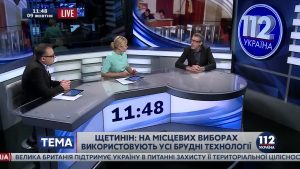
I always say that here, in contrast to Russia, freedom of speech exists and compared to Russia, for a journalist it is much more comfortable to work here. However in general, if we talk about the media, most of the media are owned by Ukrainian oligarchs.
Here, for the media that do not have such owners, it is extremely difficult to compete. Moreover, it is no secret that planted stories, which at the time of the Maidan had almost disappeared, are now prospering, even exceeding the level under Yanukovych.
Recent elections have shown that all the media are with great pleasure taking money for material, even from those politicians and parties whose stance they do not share. On the other hand one should not idealize Europe either. I have just returned from Vilnius and there I also heard talk that the one who has more money wins the election. The one who has more money has access to more powerful media. Therefore, I can say only for myself, for me as the head of a media organ that to work here is much freer and more comfortable than it used to be in Russia.
Another thing is that the free and democratic Ukrainian media do not implement the function of the fourth power. Everything is subordinated to the interests of the owners, but despite the common Russian audience fallacy that the West pays huge amounts of money, I do not know a person in Ukraine who receives such money.


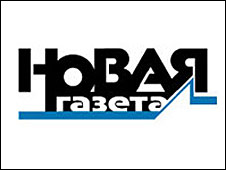 Novaya Gazeta (New Newspaper)
Novaya Gazeta (New Newspaper)